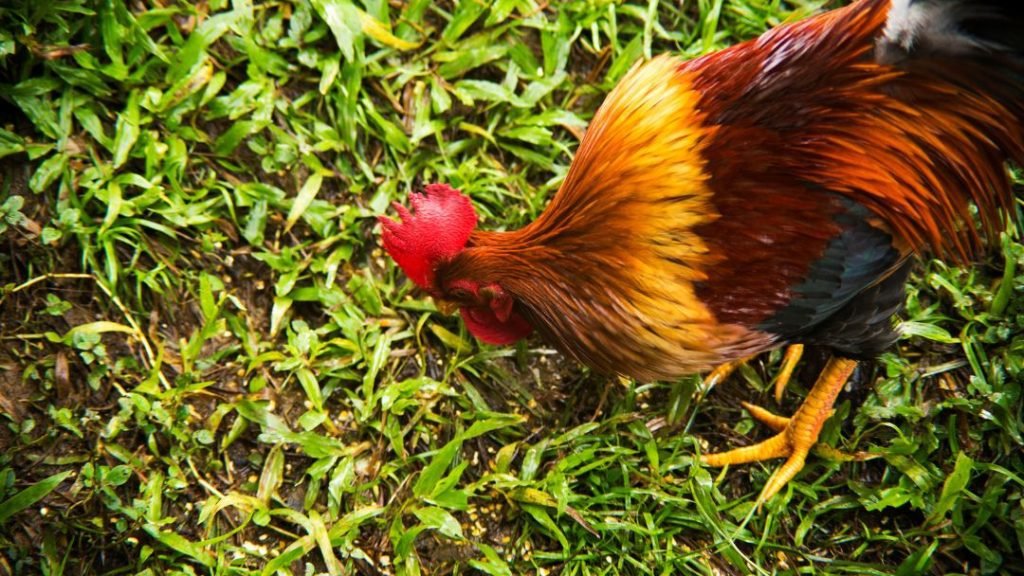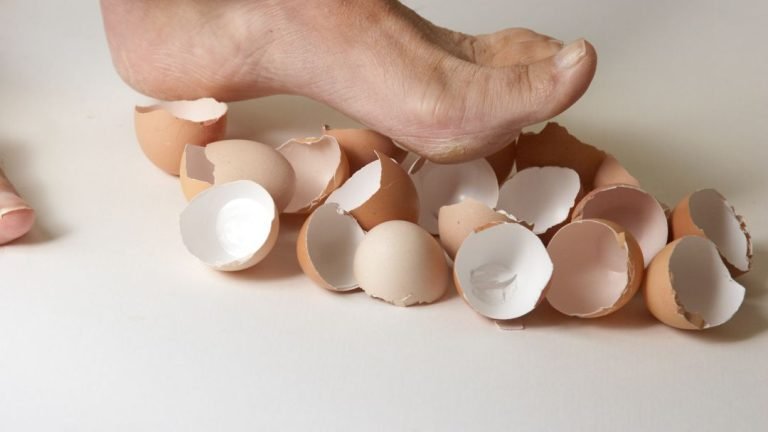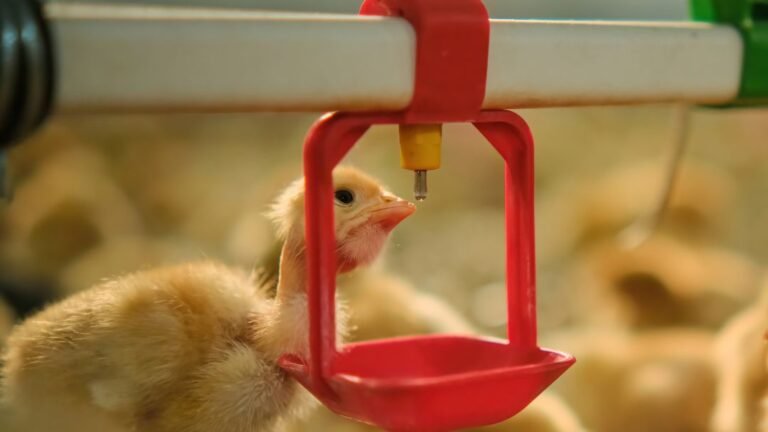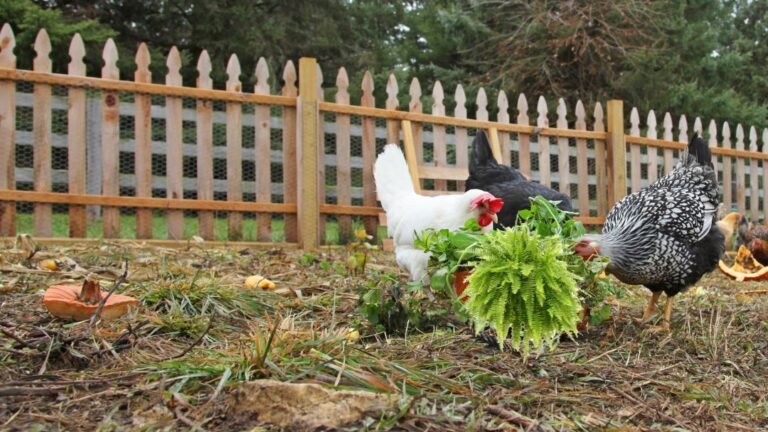To feed roosters, provide them with a balanced diet of grains, seeds, vegetables, and protein sources such as insects or worms. Roosters should also have access to fresh water at all times.
Additionally, offering a calcium source like crushed oyster shells can help maintain their overall health and strong eggshells if there are hens in the flock. It’s important to provide a controlled portion of food to prevent overfeeding and obesity, while also ensuring they have enough to eat to meet their nutritional needs.
Overall, a diverse and nutritious diet is crucial for maintaining the well-being and productivity of roosters.
The Basics: A Balanced Diet For Roosters
Roosters, just like any other living creatures, require a well-rounded and nutritious diet to thrive. Providing a balanced diet ensures that they have all the essential nutrients they need to maintain their health and vitality. Let’s take a closer look at the key components of a rooster’s diet.
The Role Of Macronutrients: Proteins, Carbohydrates, And Fats
- Proteins: These are the building blocks of a rooster’s diet. They are crucial for muscle development, growth, and the overall functioning of the body. Include protein-rich sources in their diet such as poultry feed, insects, worms, and legumes to ensure they receive an adequate amount.
- Carbohydrates: These nutrients provide energy to roosters, allowing them to perform their daily activities. Corn, barley, oats, and wheat are excellent sources of carbohydrates that can be included in their diet. However, it is important to balance their carbohydrate intake to prevent weight gain.
- Fats: Though fats should be provided in moderation, they play a vital role in the diet of roosters. Fats provide a concentrated source of energy and assist in the absorption of fat-soluble vitamins. Include healthy sources of fats such as vegetable oils and seeds in their diet.
Essential Vitamins And Minerals For Rooster Health
- Vitamin A: Crucial for maintaining healthy eyesight and supporting the immune system, vitamin A can be obtained through green leafy vegetables, carrots, and pumpkins.
- Vitamin D: Vitamin D aids in calcium absorption, promoting strong bones and overall skeletal health. If roosters have limited access to natural sunlight, consider adding vitamin D supplements to their diet.
- Vitamin E: An antioxidant that helps protect roosters from free radicals, vitamin E can be found in seeds, nuts, and fortified grains.
- Calcium: Essential for eggshell formation and strong bones, roosters require an adequate amount of calcium in their diet. Crushed oyster shells, eggshells, and bone meal are excellent sources.
- Phosphorus: Working in tandem with calcium, phosphorus is crucial for skeletal development and egg production. Incorporate sources like fish meal, ground grains, and legumes in their diet.
The Importance Of Water In A Rooster’s Diet
Water is a fundamental component of a rooster’s diet, ensuring proper hydration and supporting numerous bodily functions. Consider these aspects when it comes to water for your rooster:
- Fresh and clean water should be available at all times. Replace it regularly to maintain hygiene and prevent contamination.
- Roosters may require more water during hot weather or if they are eating a dry diet. Monitor their water consumption to ensure they stay hydrated.
- Use clean and shallow water containers that roosters can easily access. This will minimize the risk of accidental drowning.
Remember, a balanced diet, comprising macronutrients, vitamins, minerals, and ample water, is essential for the overall health and well-being of your roosters. Be mindful of their specific dietary needs and adjust their diet accordingly to keep them healthy and happy.

A Closer Look At Rooster Feed Options
Roosters, just like any other living creature, require a balanced and nutritious diet to thrive. In this section, we will explore three different options for feeding roosters: commercial feed, homemade feed, and supplementing their diet with kitchen scraps and foraged foods.
Each of these options has its own pros and cons, so let’s dive in and learn more about them.
Commercial Feed: Pros And Cons
Commercial feed is a convenient and popular choice for many rooster owners. Here are the pros and cons of using commercial feed:
- Nutritional balance: Commercial feeds are formulated to provide a balanced diet that meets the specific needs of roosters.
- Convenience: They are readily available at feed stores and can save you time and effort.
- Controlled composition: The ingredients used in commercial feeds are carefully selected, ensuring consistent quality and nutritional value.
- Variety of options: You can choose from different types of commercial feeds, such as starter, grower, layer, or all-in-one formulas, depending on the age and purpose of your roosters.
No products found.
However, there are some downsides to consider:
- Cost: Commercial feeds can be more expensive compared to homemade options.
- Limited ingredient control: While commercial feeds offer convenience, you have less control over the specific ingredients used.
- Synthetic additives: Some commercial feeds may contain synthetic additives, which may not align with your preference for natural or organic feeding.
Homemade Feed: Recipes And Considerations
If you prefer a hands-on approach to feeding your roosters, making homemade feed may be a suitable option. Here are some considerations and recipes for homemade rooster feed:
- Ingredient selection: When creating homemade feed, ensure that you include a variety of grains, proteins, and minerals to achieve a balanced diet.
- Recipes: There are different recipes available for homemade rooster feed, which often include a combination of grains like corn, wheat, oats, and protein sources like soybean meal or fish meal. You can also incorporate additional ingredients like vegetables and herbs.
- Nutritional supplements: It is essential to include additional nutritional supplements like calcium, vitamins, and minerals to ensure your roosters receive all the necessary nutrients.
- Formulating ratios: To ensure a well-balanced diet, follow recipes or consult with a poultry nutritionist to determine the appropriate ratios of ingredients.
However, there are some factors to consider when opting for homemade feed:
- Time and effort: Preparing homemade feed can be time-consuming and requires sourcing and blending various ingredients.
- Nutritional expertise: Formulating a nutritionally balanced homemade feed may require some knowledge or consultation with poultry nutrition experts.
- Variation in batches: Homemade feed may vary slightly in nutritional content between batches, making consistency a challenge.
Supplementing With Kitchen Scraps And Foraged Foods
While commercial and homemade feed are the main components of a rooster’s diet, incorporating kitchen scraps and foraged foods can provide additional nutrition and enrichment. Here are some considerations for supplementing rooster feed:
- Kitchen scraps: Leftover fruits, vegetables, grains, and small amounts of cooked meat can be given as treats to roosters. However, avoid feeding them scraps that are toxic or harmful to their health.
- Foraged foods: Roosters have a natural instinct to peck and forage for food. Allowing them access to grass, insects, worms, and other natural elements in a controlled environment can enhance their diet and contribute to their overall well-being.
It is important to remember a few guidelines when supplementing with kitchen scraps and foraged foods:
- Moderation: Treats should only account for a small portion of their overall diet, as excess treats can lead to nutritional imbalances.
- Safety: Avoid giving roosters spoiled or moldy scraps, as these can harm their health.
- Variety: Offer a diverse range of kitchen scraps and foraged foods to ensure a broader spectrum of nutrients.
By considering these options and understanding their pros and cons, you can make informed choices about what to feed your roosters. Whether you opt for commercial feed, homemade feed, or supplement with kitchen scraps and foraged foods, providing a well-balanced diet will help keep your roosters healthy and happy.
Feeding Roosters At Different Life Stages
At different life stages, roosters require specific feeding. Providing a balanced diet consisting of grains, vegetables, and proteins is essential for their growth, health, and overall well-being.
Roosters, with their majestic appearance and distinctive crowing, are an integral part of many poultry farms and backyard flocks. As responsible caretakers, we must ensure that our roosters receive proper nutrition at every stage of their lives. Feeding roosters at different life stages is crucial for their growth, health, and overall well-being.
We will explore the specific dietary requirements of roosters during each phase of their lives, from chicks to adult roosters, and even during breeding and molting periods.
Chick Feed: Meeting The Nutritional Needs Of Growing Roosters
- A balanced diet during the early stages of a rooster’s life is crucial for healthy growth and development.
- Choose a high-quality chick feed that provides the necessary nutrients and meets the specific requirements of young roosters.
- Look for chick feeds that contain a good balance of proteins, vitamins, and minerals.
- Ensure that the feed contains an adequate amount of protein (around 18-20%) to support muscle and feather development.
- To promote strong bone growth, look for feeds that contain calcium and phosphorus in the correct ratio.
- Offer chick feed as the sole diet to young roosters up until they reach around 8-12 weeks of age or until they start laying eggs.
Feed For Adult Roosters: Optimizing Health And Vitality
- Once roosters reach maturity, their dietary needs change to support their maintenance, health, and energy requirements.
- Opt for a high-quality layer feed or an all-flock feed that caters to the nutritional needs of adult roosters.
- Ensure that the feed contains a balanced ratio of carbohydrates, fats, proteins, vitamins, and minerals.
- Protein content should be around 16-18% to maintain muscle mass and overall health.
- Provide sufficient amounts of calcium to support bone strength, especially for roosters who engage in vigorous physical activities.
- Offer free-choice oyster shells or supplemental calcium sources to allow roosters to regulate their calcium intake according to their needs.
Special Considerations For Breeding And Molting Roosters
- Breeding roosters require a diet that enhances their fertility and supports the development of healthy chicks.
- Opt for breeder feed specifically formulated for roosters involved in breeding activities.
- The diet should contain optimal levels of protein (around 18-20%) and essential amino acids like arginine and lysine.
- Supplements such as linseed or flaxseed can help enhance fertility and improve the quality of rooster semen.
- During the molting period, roosters undergo feather regeneration, requiring additional nutrients to support this process.
- Supplement their diet with higher levels of protein (around 18-20%) to aid in feather re-growth.
- Provide omega-3 fatty acids through fish oil or flaxseed supplements to promote healthy feather development.
By understanding the specific nutritional requirements of roosters at different life stages, we can ensure their optimal growth, health, and reproductive capabilities. Providing a well-balanced diet that meets their nutritional needs will contribute to the overall well-being of these magnificent creatures.
Common Dietary Issues And Solutions
Roosters require a balanced diet to stay healthy. Providing a combination of grains, seeds, fruits, and vegetables can help meet their nutritional needs. It’s important to avoid feeding them certain foods like avocado and chocolate as they can be toxic.
Vitamin And Mineral Deficiencies In Roosters: Symptoms And Remedies
Roosters, like any other living beings, require essential vitamins and minerals to maintain optimal health. However, they can sometimes suffer from deficiencies, leading to various symptoms. Here are some common vitamin and mineral deficiencies in roosters, along with their corresponding symptoms and remedies:
Vitamin A Deficiency: Symptoms include poor feather quality, respiratory issues, and reduced egg production. Remedy: Provide a diet rich in dark leafy greens, orange vegetables, and liver.
Vitamin D Deficiency: Symptoms include weak bones, poor growth, and reduced eggshell quality.
Remedy: Allow roosters access to natural sunlight or provide a UVB light source. Include vitamin D-rich foods like fish oil in their diet.
Calcium Deficiency: Symptoms include soft-shelled or shell-less eggs, muscle weakness, and osteoporosis.
Remedy: Offer crushed oyster shells or calcium-rich supplements alongside a balanced diet.
Iron Deficiency: Symptoms include pale combs and wattles, reduced energy, and anemia.
Remedy: Incorporate iron-rich foods such as spinach, beet greens, and dried fruits into their diet.
Zinc Deficiency: Symptoms include poor feather growth, rough skin, and reduced fertility.
Remedy: Introduce foods like pumpkin seeds, oysters, and whole grains to enhance zinc intake.
Obesity In Roosters: Managing Weight Through Diet
Obesity can negatively impact a rooster’s overall health and well-being. To prevent or address obesity in roosters, it is essential to manage their weight through a balanced diet. Here are some tips to help roosters maintain a healthy weight:
Feed a Well-Balanced Diet:
- Offer a diet consisting of a variety of grains, seeds, vegetables, and fruits to ensure proper nutrition without excessive calorie intake.
- Avoid overfeeding or providing excessive treats that can lead to weight gain.
Monitor Portion Sizes:
- Provide only the amount of food that the rooster can consume in one sitting, preventing overeating.
- Adjust portion sizes based on the rooster’s activity level and age.
Encourage Exercise:
- Allow roosters access to a spacious and secure outdoor area where they can roam and engage in natural behaviors like foraging and scratching.
- Encourage physical activity by providing roosts at various heights and including toys or obstacles to promote movement.
Limit High-Calorie Foods:
- Avoid feeding roosters excessive amounts of food high in fat or carbohydrates.
- Minimize the intake of treats such as bread, pasta, or sugary snacks.
Dealing With Dietary Restrictions And Allergies In Roosters
Just like humans, roosters may also have dietary restrictions or allergies that need to be addressed. It is crucial to identify and accommodate these restrictions to ensure their well-being. Here are some considerations when dealing with dietary restrictions and allergies in roosters:
- Observe and Monitor: Pay close attention to any unusual behavior, digestive issues, or skin irritations that may indicate an allergic reaction or intolerance to certain foods. Consult a veterinarian for proper diagnosis and guidance.
- Elimination Diet: Gradually eliminate one ingredient at a time to identify potential allergens. Once identified, remove the allergen from their diet and provide suitable alternatives.
- Offer Allergen-Free Foods: Replace allergenic ingredients with safe alternatives, ensuring the rooster’s nutritional needs are met. Common allergens for roosters include soy, corn, wheat, and certain grains. Consider alternatives like peas, quinoa, or millet.
- Consult with a Vet: Seek professional advice from a veterinarian experienced in avian health to determine the best course of action for managing dietary restrictions or allergies.
Remember, addressing dietary issues promptly ensures that your roosters can lead healthy, vibrant lives and continue to be an integral part of your flock.
Tips For Creating A Healthy Feeding Routine
Creating a healthy feeding routine for roosters is crucial for their well-being. It is important to provide a balanced diet rich in proteins, grains, and fresh greens to ensure optimal health and productivity.
Establishing A Feeding Schedule For Roosters
- Roosters thrive on routine, so it’s essential to establish a consistent feeding schedule for them.
- A reliable feeding routine helps regulate their digestion and keeps them calm and content.
- Determine the number of feedings based on the age and activity level of your rooster.
- Create a feeding schedule that suits your daily routine but ensure there are at least two feedings spread throughout the day.
- Ensure fresh water is available at all times, especially during feeding.
Proper Portion Control For Roosters Of Different Sizes
- It’s crucial to provide the right amount of food for each rooster, considering their size and dietary needs.
- Overfeeding can lead to obesity and health problems, while underfeeding can result in malnutrition.
- Consult with a poultry expert or veterinarian to determine the appropriate portion sizes for your roosters.
- Adjust the portion sizes as the roosters grow and their activity levels change.
- Assess their body condition regularly to ensure they are neither underfed nor overfed.
Observing And Adjusting Rooster Feed Consumption
- Take the time to observe each rooster’s feed consumption to ensure they are getting enough to eat.
- Watch for signs of excessive or inadequate food intake, such as weight gain or loss, lethargy, or reduced egg production.
- Adjust the amount of feed based on their individual needs, being careful not to over or underfeed them.
- Keep in mind that the diet requirements may vary depending on factors like breed, age, and overall health.
- Regularly monitor their feed intake and make adjustments accordingly to maintain their optimal health.
By establishing a feeding schedule, practicing proper portion control, and observing and adjusting feed consumption, you can ensure that your roosters are receiving a healthy and balanced diet. Remember to consult with poultry experts when necessary and monitor their body condition regularly.
A well-fed and nourished rooster will lead to happier and more productive flocks in the long run.
Conclusion
Understanding what to feed roosters is essential for their health and overall well-being. Providing a balanced diet that includes a mixture of grains, proteins, vegetables, and supplements is key. It is important to remember that roosters have different nutritional needs than hens, so it is crucial to feed them a specialized diet tailored to their requirements.
A rooster’s diet should consist of high-quality feeds, such as pellets or crumbles, along with fresh fruits and vegetables to ensure they receive a variety of nutrients. Supplementing their diet with oyster shells or other calcium sources is also important for maintaining strong eggshells.
By following these guidelines and monitoring a rooster’s diet, you can ensure their optimal health and longevity. So, make sure to consult with a poultry nutritionist or veterinarian for expert advice and provide your roosters with the nutritious meals they need to thrive.



